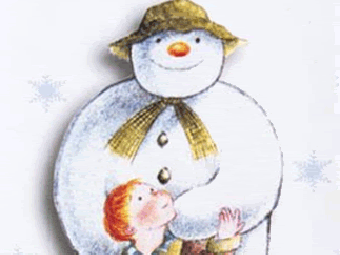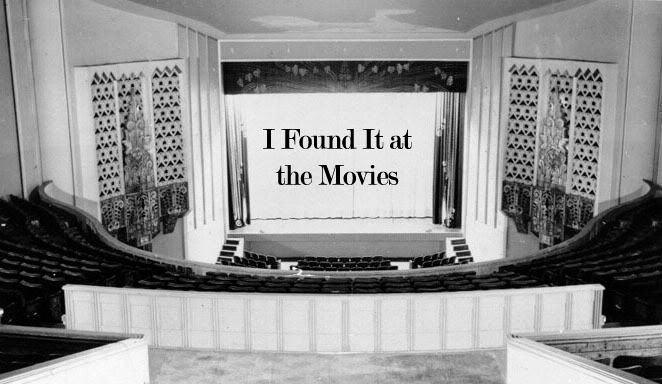THE SNOWMAN (Raymond Briggs/Dianne Jackson, 1982)

One settles in to watch this short as a lighthearted holiday short, a 26-minute piece of children's fluff which will allow parents a moment of respite from the squalor that is the anticipation of Christmas. But The Snowman is not so ordinary. Its animation is coarse and rough-hewn, imitative of Raymond Brigg's illustrative style in his eponymous book. It's pantomimed, the music taking on a Prokofiev-like character. All of this is certainly intriguing, but in the grand picture, these qualities do not set it apart all that drastically.
What makes The Snowman one of the most (if not the most) devastating children's films ever is composer Howard Blake's central theme, used in three strategic locations: over the opening credits, the middle sequence when the boy and the snowman are flying over the northern hemisphere, and the closing credits. The film's first shot--a man walks across a barren clearing, narrating about a particularly snowy day in his childhood, and then melts into an animated crane shot over a snowy landscape--is bleak, but alluring. The music haunts and engages, but does not overpower; it merely suggests. In the middle sequence, a boy sings the song "Walking in the Air" as flight over the world marks the first transformative steps of the boy into adulthood. The theme is now rapturous, full of passion and possibility.
But the circle of the boy's mature awakening comes to a close in the final moments, when the boy leaves his house the next morning to see the snowman. What he discovers, however, is but a pile of snow and tattered clothing. He has witnessed death first-hand; he is no longer a child. Jackson doesn't leave any room for sentiment or tenderness. The film cuts away from the boy immediately after his discovery, cranes up, and fades into the all-consuming whiteness of the ground. The theme re-enters. This time, it is the harbinger of death, the melody of a heart discovering that it can be broken. Innocence is lost, experience remains. It is brutal, honest, terrifying, full of pathos, and beautiful. Death's inevitability and the loss of innocence has rarely been rendered so powerfully


1 comment:
Well I saw the 1992 version and it was cool, I remember that I awakened every saturday at 6 on morning just for watch it haha but well I guess that the real good times are in the past now, thanks
Post a Comment